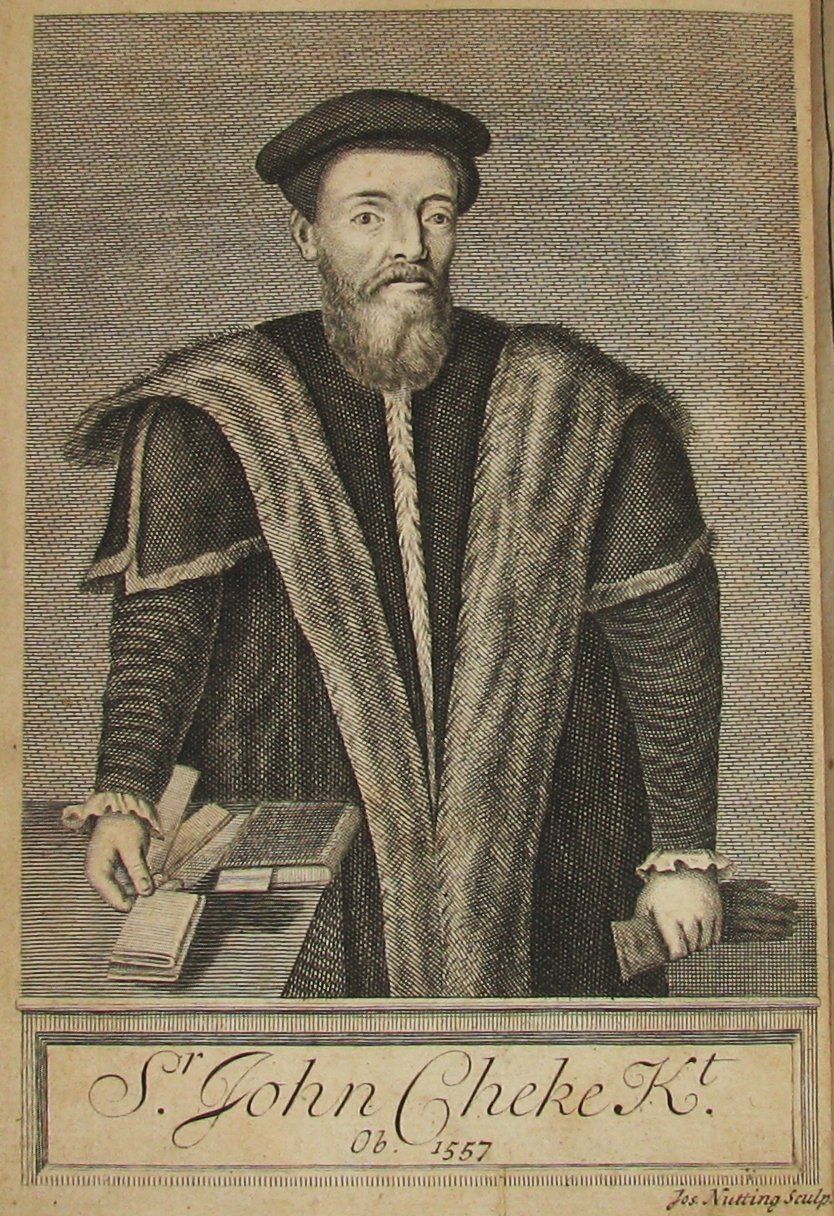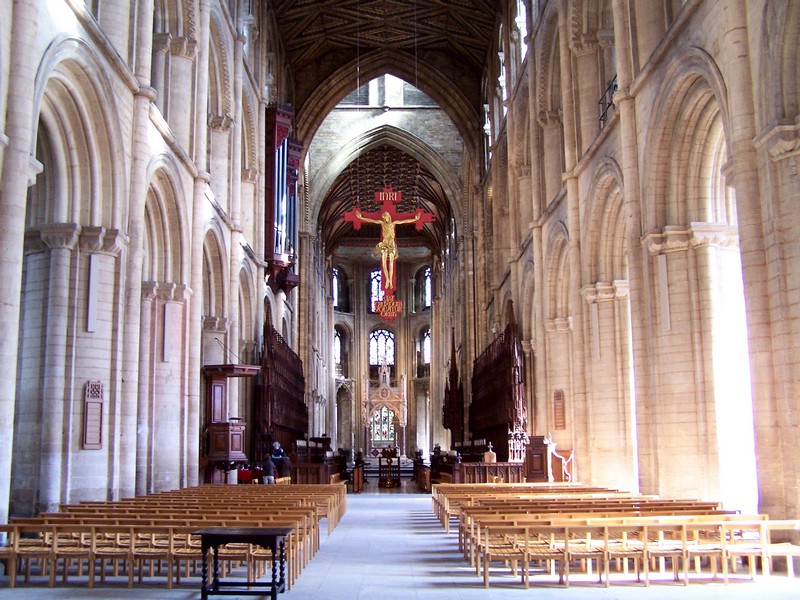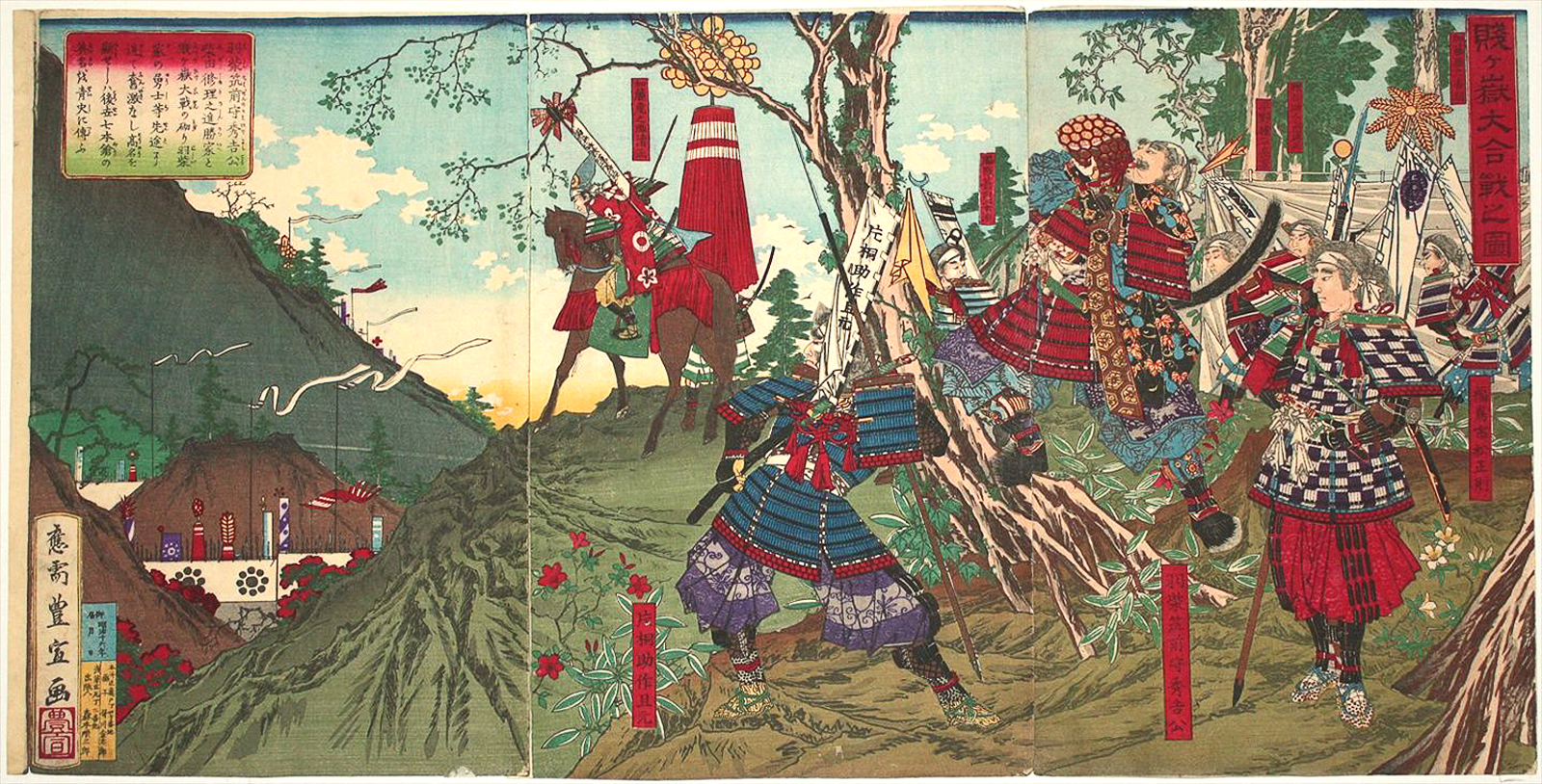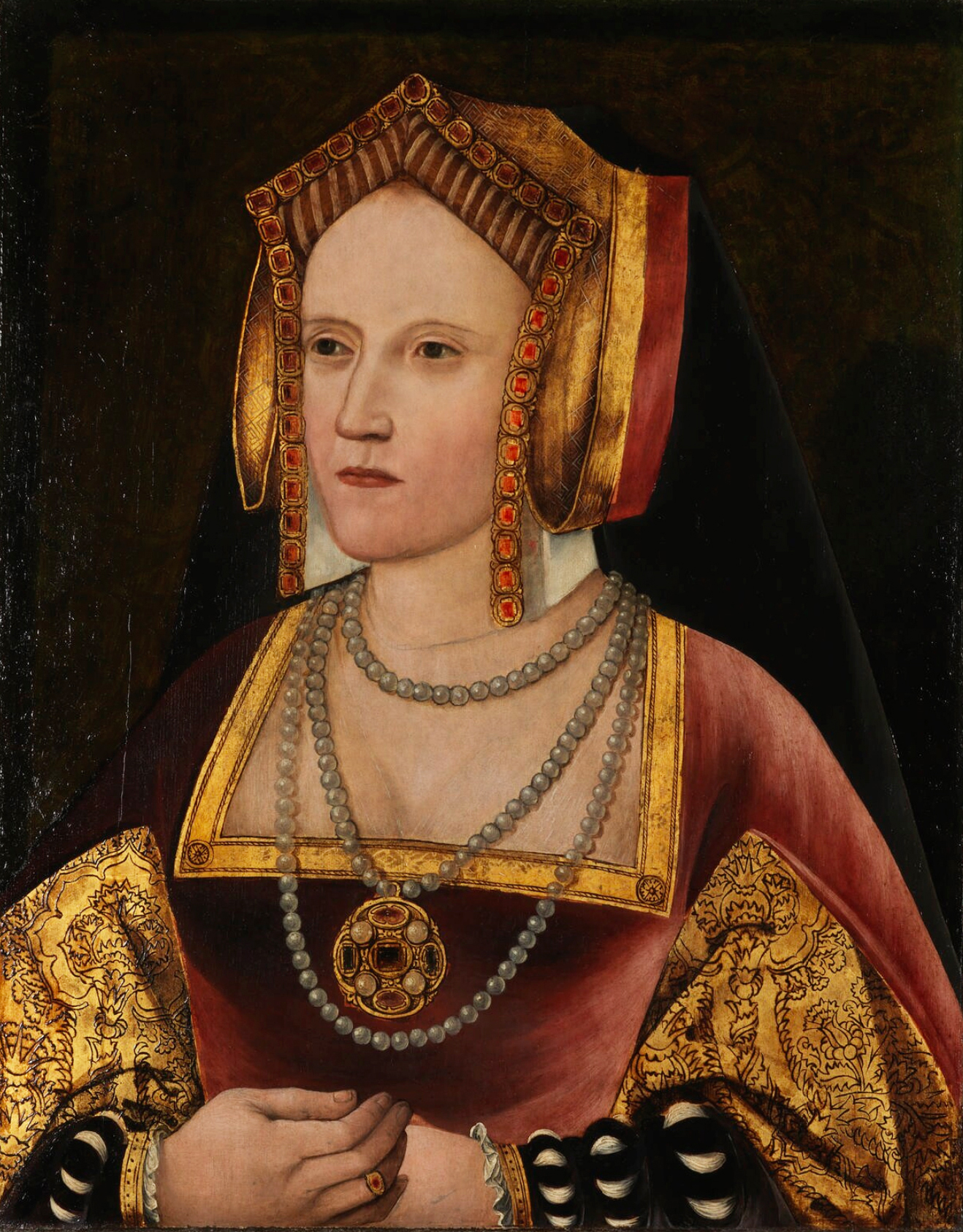|
William Latymer
William Latymer or Latimer (1499–1583) was an English evangelical clergyman, Dean of Peterborough from 1560. He was chaplain to Anne Boleyn, and is best known for his biography of her, the ''Chronickille of Anne Bulleyne''. Life He was the third son of William Latymer of Freston, Suffolk, and his wife Anne, daughter of Edward Bokinge of Ashbocking, Suffolk. He was among the group of evangelicals, including Thomas Cranmer and Matthew Parker, who gathered round Anne Boleyn as Queen and patron of the reformers. He became one of her chaplains; Hugh Latimer apparently did not, though the coincidence of names has led to confusion on this point. In 1535 Latymer was arrested at Sandwich, bringing forbidden books of Protestant reformers into the country. Anne Boleyn was already detained on the charges that would bring about her death. Latymer was allowed to send his books ahead, to Joan Wilkinson. His reputation was not damaged. He graduated M.A. 1536 at Corpus Christi College, Cambrid ... [...More Info...] [...Related Items...] OR: [Wikipedia] [Google] [Baidu] |
Evangelicalism
Evangelicalism (), also called evangelical Christianity or evangelical Protestantism, is a worldwide interdenominational movement within Protestant Christianity that affirms the centrality of being " born again", in which an individual experiences personal conversion; the authority of the Bible as God's revelation to humanity (biblical inerrancy); and spreading the Christian message. The word ''evangelical'' comes from the Greek (''euangelion'') word for " good news". Its origins are usually traced to 1738, with various theological streams contributing to its foundation, including Pietism and Radical Pietism, Puritanism, Quakerism, Presbyterianism and Moravianism (in particular its bishop Nicolaus Zinzendorf and his community at Herrnhut).Brian Stiller, ''Evangelicals Around the World: A Global Handbook for the 21st Century'', Thomas Nelson, USA, 2015, pp. 28, 90. Preeminently, John Wesley and other early Methodists were at the root of sparking this new movement during the ... [...More Info...] [...Related Items...] OR: [Wikipedia] [Google] [Baidu] |
John Cheke
Sir John Cheke (or Cheek) (16 June 1514 – 13 September 1557) was an English classical scholar and statesman. One of the foremost teachers of his age, and the first Regius Professor of Greek at the University of Cambridge, he played a great part in the revival of Greek learning in England. He was tutor to Prince Edward, the future King Edward VI, and also sometimes to Elizabeth I of England, Princess Elizabeth. Of strongly Reformist sympathy in religious affairs, his public career as provost of King's College, Cambridge, Member of Parliament and briefly as Secretary of State during King Edward's reign was brought to a close by the accession of Mary I of England, Queen Mary in 1553. He went into voluntary exile abroad, at first under royal licence (which he overstayed). He was captured and imprisoned in 1556, and recanted his faith to avoid death by burning. He died not long afterward, reportedly regretting his decision. Origins and earlier career The Cheke or Cheeke family i ... [...More Info...] [...Related Items...] OR: [Wikipedia] [Google] [Baidu] |
English Chaplains
English usually refers to: * English language * English people English may also refer to: Peoples, culture, and language * ''English'', an adjective for something of, from, or related to England ** English national identity, an identity and common culture ** English language in England, a variant of the English language spoken in England * English languages (other) * English studies, the study of English language and literature * ''English'', an Amish term for non-Amish, regardless of ethnicity Individuals * English (surname), a list of notable people with the surname ''English'' * People with the given name ** English McConnell (1882–1928), Irish footballer ** English Fisher (1928–2011), American boxing coach ** English Gardner (b. 1992), American track and field sprinter Places United States * English, Indiana, a town * English, Kentucky, an unincorporated community * English, Brazoria County, Texas, an unincorporated community * En ... [...More Info...] [...Related Items...] OR: [Wikipedia] [Google] [Baidu] |
Deans Of Peterborough
The Dean of Peterborough is the head of the chapter at Peterborough Cathedral. On the Dissolution of Peterborough Abbey in 1539 and the abbey-church's refoundation as a cathedral for the new bishop and diocese of Peterborough, care for the abbey/cathedral church passed from an abbot to a dean. The current Dean of Peterborough is Chris Dalliston List of deans Early modern *1541–1542 Francis Leycester :(last prior of St Andrew's Priory, Northampton) *1543–1549 Gerard Carleton *1549–1557 James Curthoppe *1557–1559 John Boxall (deprived) *1560–1583 William Latymer *1583–1589 Richard Fletcher *1590–1597 Thomas Nevile *1597–1607 John Palmer *1607–1612 Richard Clayton *1612–1617 George Meriton *1617–1622 Henry Beaumont (later dean of Windsor) *1622–1630 William Piers *1630–1639 John Towers *1639–1640 Thomas Jackson *1640–1660 John Cosin *1661–1664 Edward Rainbowe *1664–1679 James Duport *1679–1689 Simon Patrick *1689–1691 Richard K ... [...More Info...] [...Related Items...] OR: [Wikipedia] [Google] [Baidu] |
16th-century English Anglican Priests
The 16th century begins with the Julian year 1501 ( MDI) and ends with either the Julian or the Gregorian year 1600 ( MDC) (depending on the reckoning used; the Gregorian calendar introduced a lapse of 10 days in October 1582). The 16th century is regarded by historians as the century which saw the rise of Western civilization and the Islamic gunpowder empires. The Renaissance in Italy and Europe saw the emergence of important artists, authors and scientists, and led to the foundation of important subjects which include accounting and political science. Copernicus proposed the heliocentric universe, which was met with strong resistance, and Tycho Brahe refuted the theory of celestial spheres through observational measurement of the 1572 appearance of a Milky Way supernova. These events directly challenged the long-held notion of an immutable universe supported by Ptolemy and Aristotle, and led to major revolutions in astronomy and science. Galileo Galilei became a champion ... [...More Info...] [...Related Items...] OR: [Wikipedia] [Google] [Baidu] |
1583 Deaths
__NOTOC__ Events January–June * January 18 – François, Duke of Anjou, attacks Antwerp. * February 4 – Gebhard Truchsess von Waldburg, newly converted to Calvinism, formally marries Agnes von Mansfeld-Eisleben, a former canoness of Gerresheim, while retaining his position as Archbishop-Elector of Cologne. * March 10 – The ''Queen Elizabeth's Men'' troupe of actors is ordered to be founded in England. * May – Battle of Shizugatake in Japan: Shibata Katsuie is defeated by Toyotomi Hideyoshi, who goes on to commence construction of Osaka Castle. * May 22 – Ernest of Bavaria is elected as Roman Catholic Archbishop of Cologne, in opposition to Gebhard Truchsess von Waldburg. The opposition rapidly turns into armed struggle, the Cologne War within the Electorate of Cologne, beginning with the Destruction of the Oberstift. July–December * July 25 – Cuncolim Revolt: The first documented battle of India's independence against a ... [...More Info...] [...Related Items...] OR: [Wikipedia] [Google] [Baidu] |
1499 Births
Year 1499 ( MCDXCIX) was a common year starting on Tuesday (link will display the full calendar) of the Julian calendar. Events January–December * January 8 – Louis XII of France marries Anne of Brittany, in accordance with a law set by his predecessor, Charles VIII. * May 19 – 13-year-old Catherine of Aragon, the future first wife of Henry VIII of England, is married by proxy to her brother, 12-year-old Arthur, Prince of Wales. * July 22 – Battle of Dornach: The Swiss decisively defeat the army of Maximilian I, Holy Roman Emperor. * July 28 – First Battle of Lepanto: The Turkish navy wins a decisive victory over the Venetians. * August – Polydore Vergil completes ''De inventoribus rerum'', the first modern history of inventions. * August 24 – Lake Maracaibo is discovered, by Alonso de Ojeda and Amerigo Vespucci. * September 18 – Vasco da Gama arrives at Lisbon, returning from India, and is received by King Manuel of Portu ... [...More Info...] [...Related Items...] OR: [Wikipedia] [Google] [Baidu] |
Edward Latymer
Edward Latymer (1557–1627) was a wealthy merchant and official in London. His will established both Latymer Upper School and The Latymer School and is associated with Godolphin and Latymer School. Life Edward was the older son of William Latymer, a cleric who later became Dean of Peterborough. When the Catholic Mary I of England came to the throne, his father's position became untenable, and he retired to Ipswich close to the family estates at Freston. This is where Edward was born in 1557. In the next year, Elizabeth I of England came to the throne and William Latymer was restored to his former positions, and became the Treasurer of Westminster Abbey. Edward was educated living in the Deanery at Peterborough. He went to study at St John's College, Cambridge at the age of fourteen and left in 1575 (there is no record of his graduation). There is a following gap in his records for twenty three years. Latymer was appointed in 1594 as Deputy and Clerk to the Receiver General ... [...More Info...] [...Related Items...] OR: [Wikipedia] [Google] [Baidu] |
Emmanuel College, Cambridge
Emmanuel College is a constituent college of the University of Cambridge. The college was founded in 1584 by Sir Walter Mildmay, Chancellor of the Exchequer to Elizabeth I. The site on which the college sits was once a priory for Dominican monks, and the College Hall is built on the foundations of the monastery's nave. Emmanuel is one of the 16 "old colleges", which were founded before the 17th century. Emmanuel today is one of the larger Cambridge colleges; it has around 500 undergraduates, reading almost every subject taught within the University, and over 150 postgraduates. Among Emmanuel's notable alumni are Thomas Young, John Harvard, Graham Chapman and Sebastian Faulks. Three members of Emmanuel College have received Nobel Prizes: Ronald Norrish, George Porter (both Chemistry, 1967) and Frederick Hopkins (Medicine, 1929). In every year from 1998 until 2016, Emmanuel was among the top five colleges in the Tompkins Table, which ranks colleges according to end-of-year ex ... [...More Info...] [...Related Items...] OR: [Wikipedia] [Google] [Baidu] |
Clerk Of The Closet
The College of Chaplains of the Ecclesiastical Household of the Sovereign of the United Kingdom is under the Clerk of the Closet, an office dating from 1437. It is normally held by a diocesan bishop, who may, however, remain in office after leaving his see. The current Clerk is James Newcome, Bishop of Carlisle. The Clerk of the Closet is responsible for advising the Private Secretary to the Sovereign on the names for candidates to fill vacancies in the Roll of Chaplains to the Sovereign. He presents bishops for homage to the Sovereign, examines any theological books to be presented to the Sovereign, and preaches annually in the Chapel Royal, St James's Palace. He receives a salary of £7 a year. The Deputy Clerk of the Closet, an office dating from 1677, is the Domestic Chaplain to the Sovereign, and Sub-Dean of the Chapel Royal, and is the sole full-time clerical member of the Household. Other members of the royal family may also have their own Clerk of the Closet. List of ... [...More Info...] [...Related Items...] OR: [Wikipedia] [Google] [Baidu] |
Elizabeth I Of England
Elizabeth I (7 September 153324 March 1603) was List of English monarchs, Queen of England and List of Irish monarchs, Ireland from 17 November 1558 until her death in 1603. Elizabeth was the last of the five House of Tudor monarchs and is sometimes referred to as the "Virgin Queen". Elizabeth was the daughter of Henry VIII and Anne Boleyn, his second wife, who was executed when Elizabeth was two years old. Anne's marriage to Henry was annulled, and Elizabeth was for a time declared Royal bastard, illegitimate. Her half-brother Edward VI ruled until his death in 1553, bequeathing the crown to Lady Jane Grey and ignoring the claims of his two half-sisters, the Catholic Church, Catholic Mary I of England, Mary and the younger Elizabeth, in spite of Third Succession Act, statute law to the contrary. Edward's will was set aside and Mary became queen, deposing Lady Jane Grey. During Mary's reign, Elizabeth was imprisoned for nearly a year on suspicion of supporting Protestant reb ... [...More Info...] [...Related Items...] OR: [Wikipedia] [Google] [Baidu] |
Mary I Of England
Mary I (18 February 1516 – 17 November 1558), also known as Mary Tudor, and as "Bloody Mary" by her Protestant opponents, was Queen of England and Ireland from July 1553 and Queen of Spain from January 1556 until her death in 1558. She is best known for her vigorous attempt to reverse the English Reformation, which had begun during the reign of her father, Henry VIII. Her attempt to restore to the Church the property confiscated in the previous two reigns was largely thwarted by Parliament, but during her five-year reign, Mary had over 280 religious dissenters burned at the stake in the Marian persecutions. Mary was the only child of Henry VIII by his first wife, Catherine of Aragon, to survive to adulthood. Her younger half-brother, Edward VI, succeeded their father in 1547 at the age of nine. When Edward became terminally ill in 1553, he attempted to remove Mary from the line of succession because he supposed, correctly, that she would reverse the Protestant refor ... [...More Info...] [...Related Items...] OR: [Wikipedia] [Google] [Baidu] |
.jpg)






